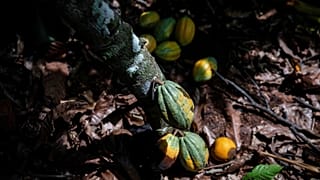Djibouti
Djibouti is well known for it’s strategic location serving as a centre for trade and business in the Horn of Africa.
Lorries arrive from Ethiopia carrying several sacks of khat, a herbal stimulant which has become very popular among the country’s local population.
Unloading takes less than 15 minutes for the suppliers to start the distribution process across the country.
The chewing culture of the stimulant is however dragging development prospects in the country, with half of the male population consuming it.
According to the World Bank, the industry is worth about 15 million dollars a year with the average user spending half of their income on the narcotic plant.
Djiboutians are still not ready to stop their addiction, despite the side effects the stimulant causes.
“We buy it in the morning to share some ideas and then the next morning it starts again. It causes problems at work and with our health. It suits the state because if people didn’t chew their dose of khat, they would claim their rights. There would be a lot of agitation,” said one user.
The country faces an unemployment crisis where nearly 6 out of 10 people are unemployed.
15% of tax revenues come from the sales of khat filling Djibouti’s state coffers at the expense of its people.
In 2014, the United Kingdom banned the consumption of the stimulant despite generating huge amounts of tax revenue to the country.













01:55
One year into M23 control, residents are struggling to get by in DRC's eastern capital
01:51
In Ivory Coast, cocoa farmers have nobody to sell their produce to
00:50
Ghana's multidimensional poverty rate declines for third consecutive quarter
00:50
Iran police officer killed as protests over cost of living enter 12th day
01:23
Donald Trump defends first year back in office in politically charged speech
00:59
Egypt opens bid to privatise Hurghada International Airport